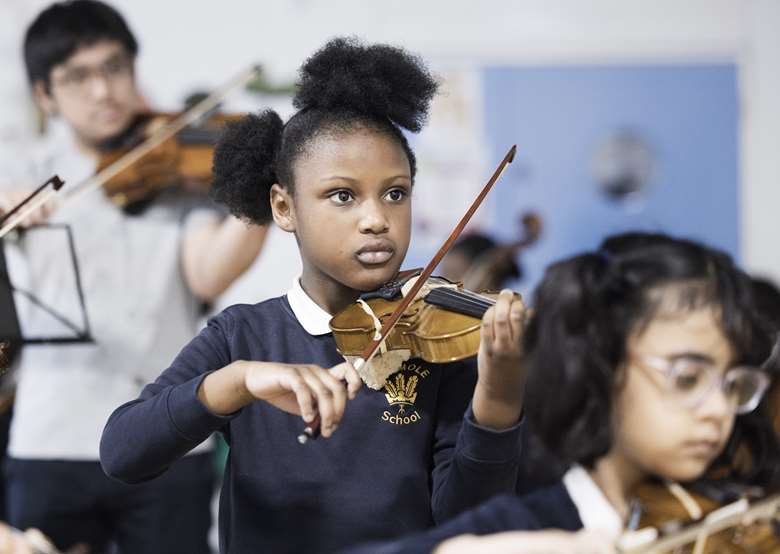Music Masters partners with Black Lives in Music for teacher training
Florence Lockheart
Wednesday, February 28, 2024
The music education charity has collaborated with BLiM to provide fully funded places on its Musicians of Change course

Music education charity Music Masters has teamed up with anti-racism arts organisation Black Lives in Music (BliM) to offer two free places on Music Masters’ Musicians of Change teacher training course for educators and instrumentalists working with children in groups settings.
The partnership is part of the organisations’ mission to build a fully representative music teaching workforce for children and young people in the UK. It will see two educators attend the course – run in collaboration with Birmingham City University’s School of Education and Social Work – for free, eliminating financial barriers to access.
Music Masters programme director Katrina Damigos said: ‘Training courses are expensive and often conflict with other freelance work, and pressures on musicians are mounting, with access to opportunities limited for many of those in underrepresented groups. Music Masters is committed to transforming music education and tackling underrepresentation in the music education workforce; we couldn’t be happier to be continuing our partnership with Black Lives in Music.’
The Musicians of Change works to support a community-driven approach to teaching that ‘calls for the sector to listen and respond to the needs of educators’ and challenges ‘perceptions about the decline of music in schools’. Course participants gain an internationally recognised level 7 qualification and teaching certificate as well as receiving training focusing on ensemble teaching and gaining the skills to be ‘gamechangers within their school settings’.
Course graduate (2022-23) Sam Brown said: ‘It is crucial to institutional development to have teachers of different backgrounds, it's important to demonstrate diversity in workspaces, so people who look like me do not get boxed into only doing certain things, the only reason why this happens is due to lack of access. It's time for more rich and vibrant spaces, with so many different kinds of people and all fantastic teaching styles that we can learn from.’



